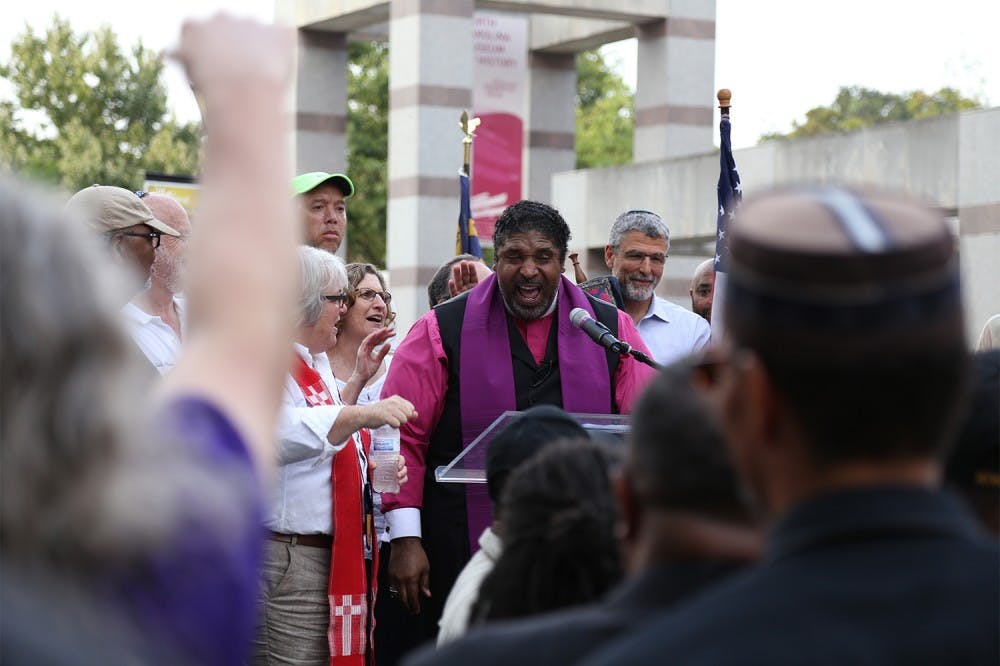The NAACP is leading the 860-mile march, which began Aug. 1 — 50 years after the bill was passed. Participants have traveled the Southern states from Alabama through Georgia and South Carolina, and will end in Washington, D.C., in two weeks.
The march aims to highlight a different economic or political challenge for each state it visits. North Carolina’s focus was voting rights.
Cornell Brooks, president of the NAACP, was one of several who spoke at the rally in front of the N.C. State Capitol following the march.
“We march because our people shed blood, sweat and tears for the right to vote,” Brooks said. “We’re marching across the five states that were previously covered by the Voting Rights Act that are left today civically naked and unprotected.”
The N.C. General Assembly legislated in 2013 that a valid form of ID is required to vote. The U.S. Department of Justice filed a lawsuit challenging the law on the basis of discriminatory intent, but legislators made an amendment this summer to allow exemptions in certain cases in which voters lack appropriate identification. Arguments to decide if the original charges still had merit were heard last week.




